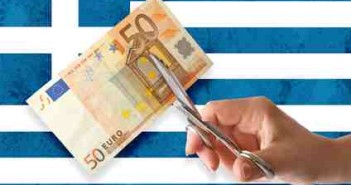Greece is back to the headlines after PM Samaras’ presidential bid failed and the country is heading to parliamentary elections.
This has already weighed on the euro, but is there more? The team at Nomura provides 4 reasons why the euro’s downfall could accelerate in early January:
Here is their view, courtesy of eFXnews:
With the calling of early elections in Greece, the key risk is a SYRIZA win on January 25, and a subsequent shift towards confrontational policies towards the EU/IMF/ECB, notes Nomura.
To get more insights on that, Nomura’s Greece specialists, highlight the key issues in a recent note to clients.
1- SYRIZA is in the lead in the opinion polls. But the lead is narrowing. Hence it will be a close call.
2- Financing problems will come to the fore by March. But more T-bill issuance may cover funding needs to about June.
3- The current bailout program (ESFS funding) ends on Feb 28. Access to ECB liquidity will be constrained thereafter.
4- No single party is likely to obtain a majority on Jan 25. Hence a complex coalition outcome is likely, and formation of a government could take several weeks.
“Hence, political risk in Greece is again creating global headlines. But as opposed to 2010-2012, the spill-over effects to the rest of the Eurozone seem limited. While Greek bond yields have moved from close to 6% in early October to 9.3% today, Spanish bond yields continue to trade to new lows (10Y at 1.59% today),” Nomura argues.
Impact on EUR/USD:
“The EURUSD down-trade has gotten more momentum since risk assets calmed (since mid-December). It would be no major surprise if momentum to the downside further accelerates in early January, when investors put on fresh risk in the new year,” Nomura projects.
For lots more FX trades from major banks, sign up to eFXplus
By signing up to eFXplus via the link above, you are directly supporting Forex Crunch.
